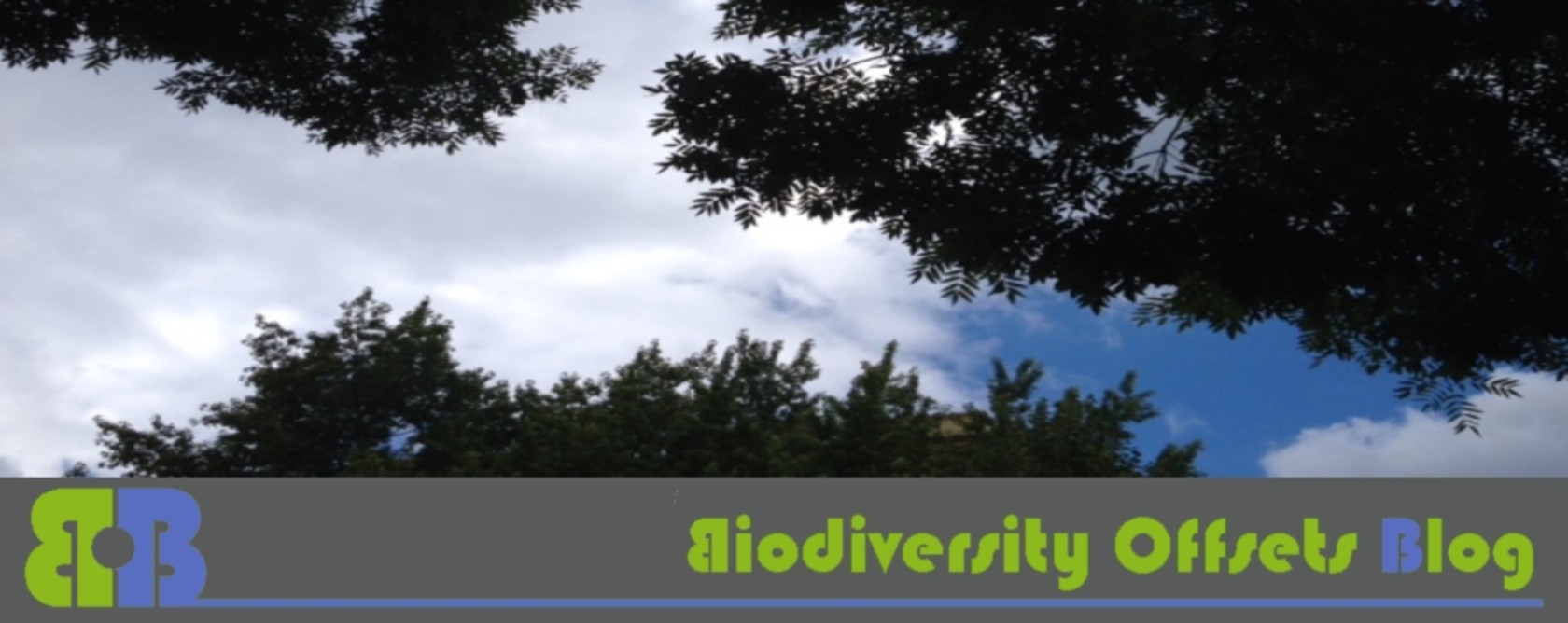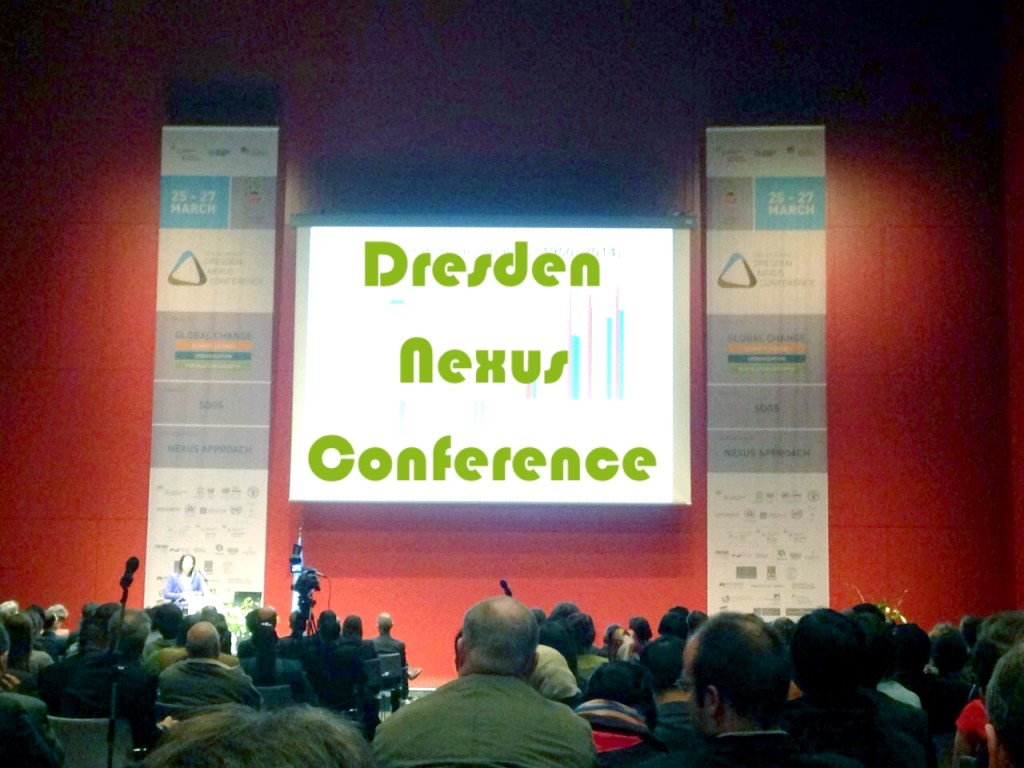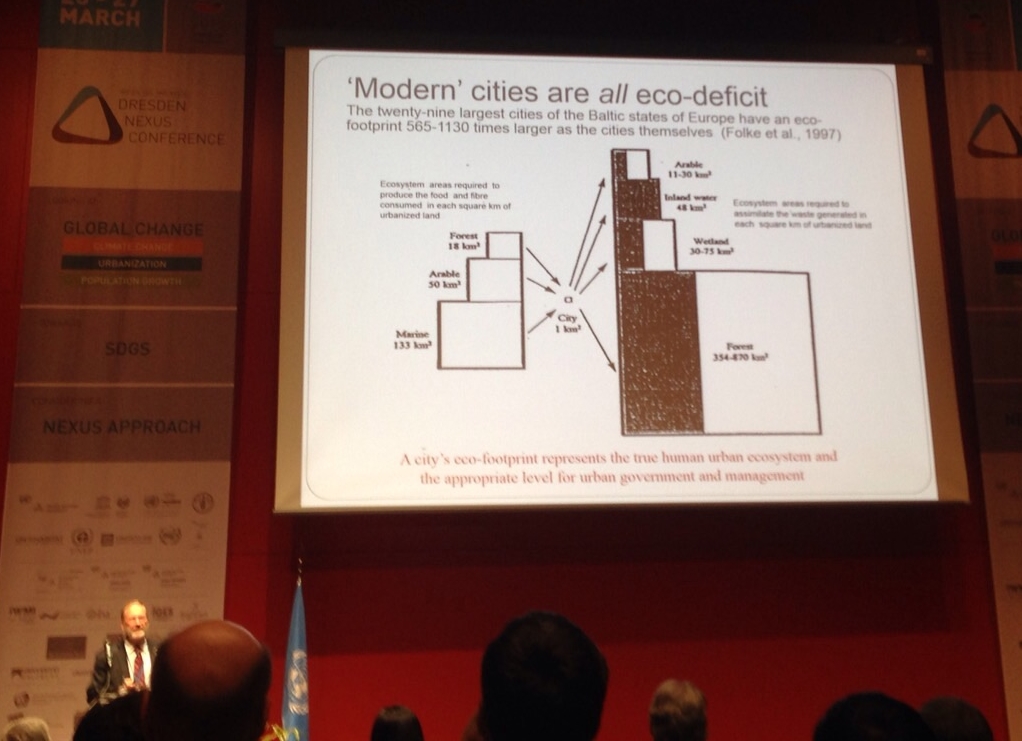The last few days I was attending the first Dresden Nexus Conference. The event, co-organized by Leibniz Institute of Ecological Urban and Regional Development (my institute), United Nations University and Technische Universität Dresden (our local university), unified the catch words Global Change, Sustainable Development Goals and the Nexus Approach and covered a vast spectrum of topics related to water, soil and waste, but also the broader social, environmental and economic context.
The first day was dedicated to climate change, the second day to urbanization and the third day to population growth and the increasing demand for environmental resources.
There were some insightful keynotes in the plenary (e.g. Joseph Alcamo, Center for Environmental Systems Research spoke on “Systems thinking for advancing a nexus approach to water, soil and waste” and Michael Hermann, United Nations Population Fund, highlighted “Three policy priorities for a sustainable nexus”), a vast and diverse poster exhibition and in-depth parallel sessions.
Find more information on the conference at www.dresden-nexus-conference.org.
My personal favourites…
… were the sessions on “Inclusive and Sustainable Industrial Development for Resources Efficient Industries”, “Urban Ecosystem Services and Biological Diversity” and “The Potentials of Integrated Land-Use Planning and Ecosystem Services to Enhance the Sustainable Provision of Natural Resources”.
There were some references to the relation of economic and ecologic resources, natural capital and payments for ecosystem services (e.g. in Mexico) being made, but nothing explicitly related to biodiversity offsets.
However, my personal highlight was the keynote of the second day (“Urbanization”) by Prof. em. William Rees from the University of British Columbia. He was recently elected a full member of the Club of Rome (and you could see that in his presentation — I have to admit I am a huge fan of the Club of Rome, Limits to growth etc.). His eye-opening and honest talk was entitled “Is urban sustainability possible? Biophysical and political considerations”.
How often do you hear words like “nonsense” in the mostly very cooperative and positive context of conferences? Well, I don’t. So his presentation was quite refreshing (in the spirit of “an inconvenient truth”). He clearly stated that we will need more than one earth if we continue this way (I know, that is not so new, but still worth saying it). His clauses must have seemed rude, but honest (see for example the slide in the picture below: “MODERN CITIES ARE ALL ECO-DEFICIT”).
This cumulated at the point (at least for me) when he said that it is purely NONSENSE if we pursue economic growth on the premise that it can be decoupled from the natural environment and environmental impacts (something that I have heard a few times on the conference, though)!
For me, these are wise words, because we should always keep in mind the starting point (and here I come back to biodiversity offsets), i.e. be aware that all mechanisms that we apply to tackle our environmental footprint, like biodiversity offsets, are ultimately only tools (or “cosmetics”) that should be used as rarely as possible. In fact, we need to change our attitude and way of living (and consumption) first…


